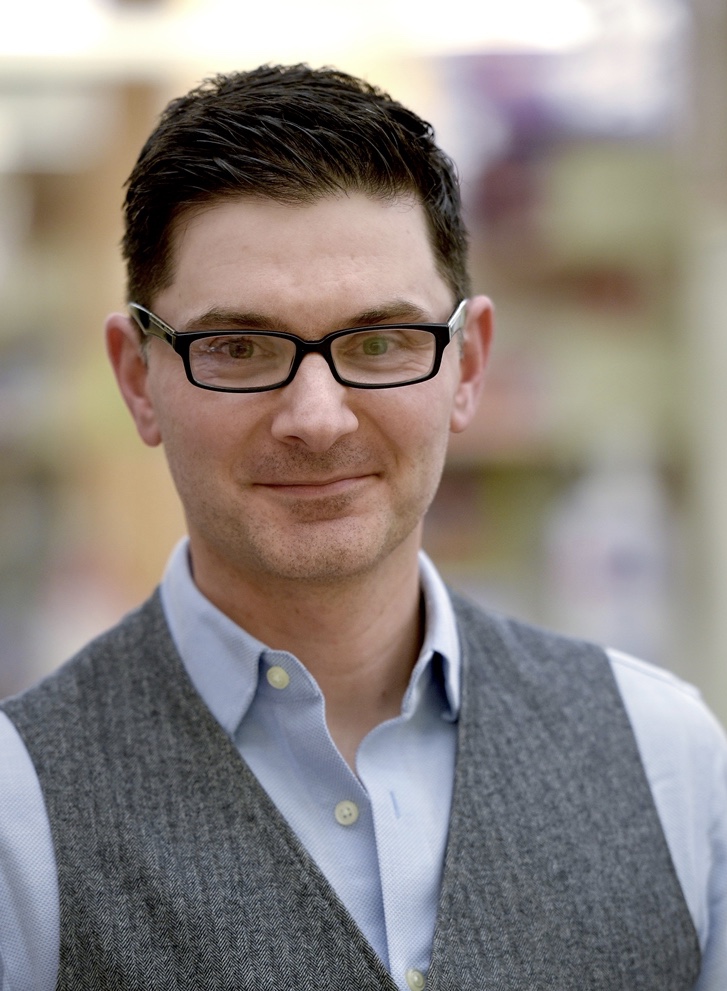Sokol Todi PhD (ej5561)
University information
Contact information
Neurology
Dr. Sokol V. Todi is Professor in the Departments of Pharmacology and Neurology at Wayne State University School of Medicine and the Chair of the Department of Pharmacology. Until January 2022, Dr. Todi served as the Associate Dean for Postdoctoral Affairs for the university. Dr. Todi opened the doors of his laboratory at Wayne State in December 2010, was awarded Tenure in 2015, and was promoted to full Professor in 2020.
During his time at Wayne State, Dr. Todi has been funded through R00 and R01 mechanisms from the NIH, as well as funds from non-governmental organizations, such as the National Ataxia Foundation, which recognized him two years in a row as a Young Investigator in Spinocerebellar Ataxias, and more recently with a Pioneer Award in SCAs. Dr. Todi’s work has also been recognized internally at Wayne (e.g. the Career Development Chair Award). Dr. Todi’s laboratory investigates mechanisms of neurodegeneration and neuroprotection in age-dependent neurodegenerative diseases caused by misfolded proteins, with particular focus on polyglutamine disease proteins.
Research Summary
Age-related neurodegeneration, including Alzheimer's Disease, Parkinson's Disease and Polyglutamine Diseases (e.g. several Spinocerebellar Ataxias and Huntington's Disease), afflicts millions of people worldwide. General understanding of molecular mechanisms involved in each of these diseases is incomplete and no cures exist for them. By using a combination of in vitro biochemistry, mammalian cell biology and fruit fly (Drosophila melanogaster) genetics, the Todi laboratory is working to identify and characterize genes important for neuronal homeostasis during normal function and in disease. They have made great progress in recent years towards understanding mechanisms of disease as well as narrowing down on viable therapeutic approaches.
Another major focus of their work centers on the physiological functions of a large class of proteases known as deubiquitinating enzymes (DUBs). DUBs are critical regulators of numerous cellular pathways and have recently emerged as potential therapeutic targets for various diseases, including neurodegenerative ones. The work that the Todi lab has been conducting with DUBs, some of which themselves cause degeneration when mutated, is shedding new light into basic cell biology and identifying novel therapeutic targets and strategies.
Lastly, the Todi lab recently expanded their work into novel processes important for protein quality control (proteostasis) during normal physiological activities as well as in diseases of the nervous system by centering on unconventional mechanisms involving the small protein modifier, ubiquitin.
Scott Hall, Suite 3108
MENTORSHIP STATEMENT
My focus as a mentor is simple: my mentees and their long-term success and wellbeing. As a mentor to high school, undergraduate and graduate students, as well as postdocs and faculty, this focus has always remained sharp, although my approach to ensuring successful outcomes does vary with each mentee.
Each mentee is a different person with a different, fascinating and multi-faceted background; with different types of talent; with different and sometimes changing aspirations; and in need of different types of help. Thus, from the very inception of a mentoring relationship and plan, my mentee and I work together to understand each other’s goals and dreams, backgrounds, strengths and weaknesses. Often, I become a mentee myself and learn from those under my guidance and mentorship.
To ensure my mentees’ success and wellbeing, we work together to make sure that each of them has frequent and easy access to me in the laboratory and off campus. We interact often and informally. We ascertain that they are happy, safe, and secure — aspects that are necessary for unimpeded progress and success during their training and beyond. We work together to accomplish short- and long-term goals that we have devised collectively. We work together so that each mentee gradually reaches their full independence. We work together so that each mentee develops and follows ethical behavior and conduct at every level. We work together to ensure that each mentee knows that I will always be there for them, at any time of their lives.
Each mentee is a different person. Each deserves a different plan, approach, and timeline. Each should succeed in their own goals. And each must be treated with grace, respect and care.
University of Nebraska-Lincoln, B.Sc. (Biological Sciences) 1995. High Distinction Graduate
University of Iowa, Iowa City, IA, PhD (Neuroscience) 2005
Professor and Chair of the Department of Pharmacology; Professor of Neurology
Post-Doctoral Fellow, University of Iowa College of Medicine, 2005-2007. Ubiquitin-dependent pathways in neurodegenerative diseases.
Research Assistant Professor, Neurology, University of Michigan, 2010
Age-related neurodegenerative diseases, molecular mechanisms of neurodegeneration and neuroprotection, ubiquitin-dependent pathways in cell function, deubiquitinating enzymes, ataxias, polyglutamine diseases, multiple sclerosis.
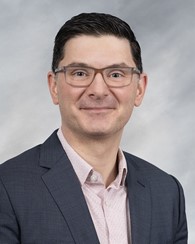
Office of Inclusive Excellence
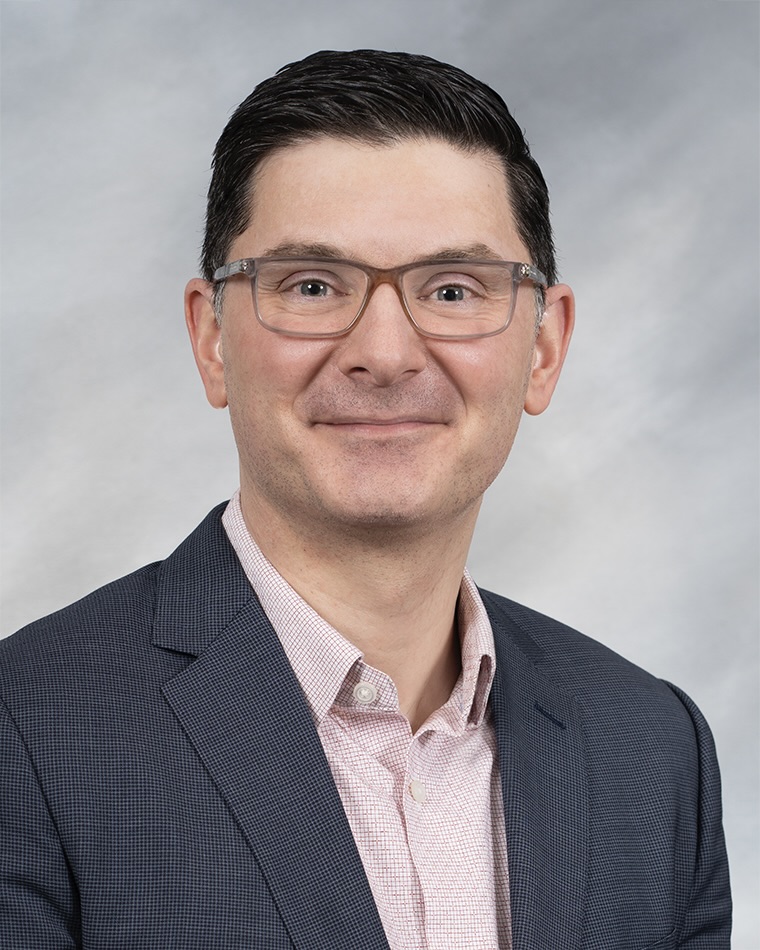
Pharmacology
540 E. Canfield, Detroit MI 48201
3108 Scott Hall
Office: 313-577-1173
Dr. Sokol V. Todi is Professor in the Departments of Pharmacology and Neurology at Wayne State University School of Medicine and Chair of the Department of Pharmacology. Until January 2022, Dr. Todi served as the Associate Dean for Postdoctoral Affairs for the university. Dr. Todi opened the doors of his laboratory at Wayne State in December 2010, was awarded Tenure in 2015, and was promoted to full Professor in 2020.
During his time at Wayne State, Dr. Todi has been funded through R00 and R01 mechanisms from the NIH, as well as funds from non-governmental organizations, such as the National Ataxia Foundation, which recognized him two years in a row as a Young Investigator in Spinocerebellar Ataxias, and more recently with a Pioneer Award in SCAs. Dr. Todi’s work has also been recognized internally at Wayne (e.g. the Career Development Chair Award). Dr. Todi’s laboratory investigates mechanisms of neurodegeneration and neuroprotection in age-dependent neurodegenerative diseases caused by misfolded proteins, with particular focus on polyglutamine disease proteins.
Research Summary:
Age-related neurodegeneration, including Alzheimer's Disease, Parkinson's Disease and Polyglutamine Diseases (e.g. several Spinocerebellar Ataxias and Huntington's Disease), afflicts millions of people worldwide. General understanding of molecular mechanisms involved in each of these diseases is incomplete and no cures exist for them. By using a combination of in vitro biochemistry, mammalian cell biology and fruit fly (Drosophila melanogaster) genetics, the Todi laboratory is working to identify and characterize genes important for neuronal homeostasis during normal function and in disease. They have made great progress in recent years towards understanding mechanisms of disease as well as narrowing down on viable therapeutic approaches.
Another major focus of their work centers on the physiological functions of a large class of proteases known as deubiquitinating enzymes (DUBs). DUBs are critical regulators of numerous cellular pathways and have recently emerged as potential therapeutic targets for various diseases, including neurodegenerative ones. The work that the Todi lab has been conducting with DUBs, some of which themselves cause degeneration when mutated, is shedding new light into basic cell biology and identifying novel therapeutic targets and strategies.
Lastly, the Todi lab recently expanded their work into novel processes important for protein quality control (proteostasis) during normal physiological activities as well as in diseases of the nervous system by centering on unconventional mechanisms involving the small protein modifier, ubiquitin.
Learn more about the Todi lab at: researchgate.net/profile/Sokol_Todi
University of Iowa College of Medicine, Iowa City, IA, U.S.A.
Laboratory of Dr. Henry L. Paulson
Post-Doctoral training in neurodegeneration; 06/2005 – 06/2007
University of Michigan Medical School, Ann Arbor, MI, U.S.A.
Laboratory of Dr. Henry L. Paulson
Post-Doctoral training in neurodegeneration; 07/2007 – 08/2010
Baccalaureate:
University of Nebraska, Lincoln, NE, U.S.A.; 08/1995 – 05/1999
B.Sc. (Biological Sciences, Major; Psychology, Art History & Criticism, Minors), May, 1999
Graduate:
University of Iowa, Iowa City, IA, U.S.A.; 01/2000 – 05/2005
Laboratory of Dr. Daniel F. Eberl
Focus: Auditory mechanotransduction
Ph.D. in Neuroscience, May, 2005
Polyglutamine diseases, age-related neurodegeneration, ubiquitin-dependent pathways, Drosophila genetics, biochemistry, mammalian cell biology
Diseases of the nervous system caused by misfolded proteins | Ubiquitin recycling | Neuronal and glial development
While at Wayne State University
12/2020: Award for Excellence in Research, WSU School of Medicine
02/2019: Pioneer Award in Spinocerebellar Ataxias, National Ataxia Foundation, USA
04/2017: Career Development Chair, WSU
10/2015: Award for Excellence in Research, WSU School of Medicine
10/2014: Award for Excellence in Instruction and Teaching, WSU School of Medicine
12/2012: Young Investigator in Spinocerebellar Ataxias, National Ataxia Foundation
12/2011: Young Investigator in Spinocerebellar Ataxias, National Ataxia Foundation
While at the University of Michigan
09/2009: K99/R00 Career Advancement Award, NINDS
01/2008: Post-Doctoral Travel Award, American Society for Biochemistry and Molecular Biology Annual Meeting
While at the University of Iowa
12/2006: Post-Doctoral Award, American Society for Cell Biology Annual Meeting
01/2006: Research Fellowship, National Ataxia Foundation
01/2004: Pre-Doctoral Fellowship, American Heart Association
12/2003: Graduate Incentive Fellowship, University of Iowa
11/2003: Graduate Student Travel Fellowship, Society for Neuroscience Meeting
While at the University of Nebraska – Lincoln
1999: Phi Beta Kappa National Honor Society
1999: High Distinction Graduate
1999: Superior Scholar
1997: Scholastic Achievement & Excellence, Golden Key National Honor Society
1995 – 1999: Dean’s List
1995 – 1999: Distinguished Foreign Student Scholarship
1995 – 1999: Certificate of High Scholarship
Continuously funded by the National Institutes of Health, non-governmental organizations (e.g. National Ataxia Foundation) and from internal WSU funds throughout tenure at Wayne State University.
MENTORSHIP STATEMENT
My focus as a mentor is simple: my mentees and their long-term success and wellbeing. As a mentor to high school, undergraduate and graduate students, as well as postdocs and faculty, this focus has always remained sharp, although my approach to ensuring successful outcomes does vary with each mentee.
Each mentee is a different person with a different, fascinating and multi-faceted background; with different types of talent; with different and sometimes changing aspirations; and in need of different types of help. Thus, from the very inception of a mentoring relationship and plan, my mentee and I work together to understand each other’s goals and dreams, backgrounds, strengths and weaknesses. Often, I become a mentee myself and learn from those under my guidance and mentorship.
To ensure my mentees’ success and wellbeing, we work together to make sure that each of them has frequent and easy access to me in the laboratory and off campus. We interact often and informally. We ascertain that they are happy, safe, and secure — aspects that are necessary for unimpeded progress and success during their training and beyond. We work together to accomplish short- and long-term goals that we have devised collectively. We work together so that each mentee gradually reaches their full independence. We work together so that each mentee develops and follows ethical behavior and conduct at every level. We work together to ensure that each mentee knows that I will always be there for them, at any time of their lives.
Each mentee is a different person. Each deserves a different plan, approach, and timeline. Each should succeed in their own goals. And each must be treated with grace, respect and care.
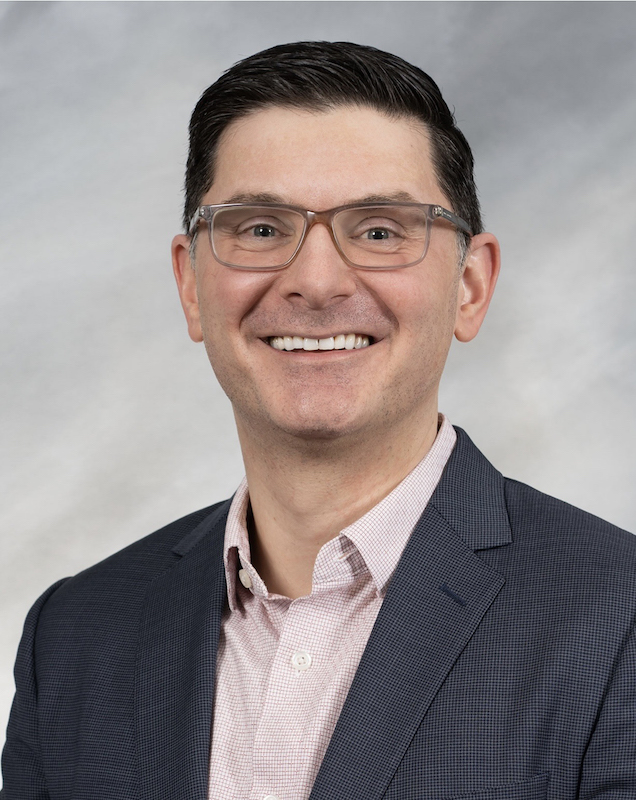
School of Medicine
6374 Scott Hall
313-577-1173 | Fax: 313-577-6739
Sokol Todi, Ph.D., is the Chair of the Wayne State University School of Medicine’s Department of Pharmacology.
Dr. Todi joined the School of Medicine faculty as an assistant professor of Pharmacology and of Neurology in 2010. He previously served briefly as an adjunct assistant professor of Biology at the University of Iowa and as a research assistant professor of Neurology at the University of Michigan, where he completed his post-doctoral studies.
While at WSU, Dr. Todi has been consistently funded through R00, R21 and R01 grants from the National Institutes of Health, as well as support from non-governmental organizations such as the National Ataxia Foundation, which recognized him two years in a row as a Young Investigator in Spinocerebellar Ataxias, and more recently with a Pioneer Award. His research has also been recognized with the WSU Career Development Chair Award.
His laboratory investigates mechanisms of neurodegeneration and neuroprotection in age-dependent neurodegenerative diseases caused by misfolded proteins, with particular focus on polyglutamine disease proteins.
In 2020, Dr. Todi received the School of Medicine’s Excellence in Research Award, and in 2014 he received the Award for Excellence in Instruction and Teaching. He has mentored numerous graduate and doctoral students.
A widely-published researcher, he is an associate editor of the Journal of Neuroscience Research and a member of the editorial board of Scientific Reports.
Dr. Todi received his bachelor’s degree in Biological Sciences from the University of Nebraska-Lincoln in 1999 and his doctoral degree in Neuroscience from the University of Iowa in 2005. He was a post-doctoral fellow in Neurodegeneration at the University of Iowa and at the University of Michigan.
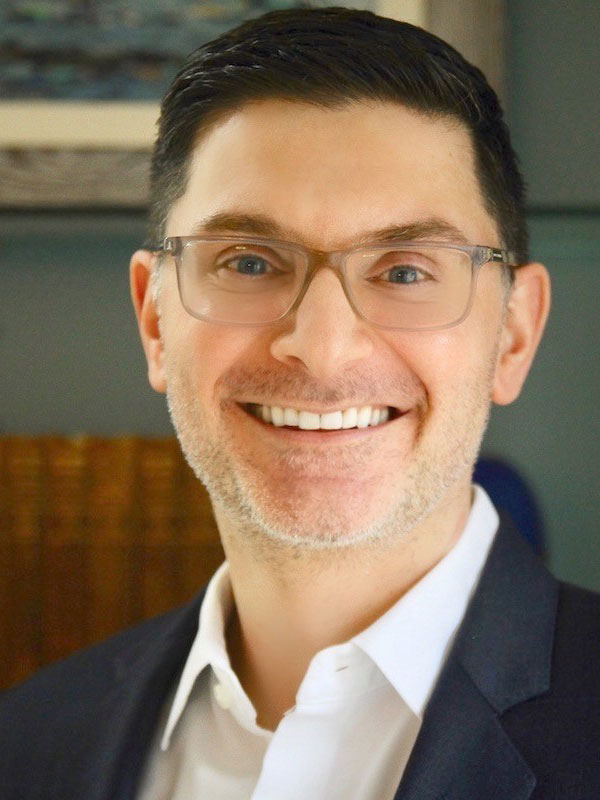
Translational Neuroscience Program
My laboratory investigates molecular processes that cause age-dependent neurodegeneration in various diseases. We seek to utilize this information to protect the nervous system from inherited mutant proteins that accumulate over time and lead to cell death.
Area of Expertise is in Neurodegeneration, Protein Quality Control and Genetics
Disease/Disorder
Spinocerebellar Ataxias, Kennedy’s Disease, Alzheimer’s, Parkinson’s
Species
Drosophila melanogaster, mammalian cell culture, post-mortem rodent and human tissue
Methods
Genetics, protein biochemistry, in vitro biochemistry reactions, fly and cell imaging, some electropnhysiology
Key Collaborators
R. J. Wessells (WSU), Aloke Dutta (WSU), Peter LeWitt (WSU), Andrew Lieberman (U Mich), Carmo Costa (U Mich), Diane Merry (Thomas Jefferson Univ.)
